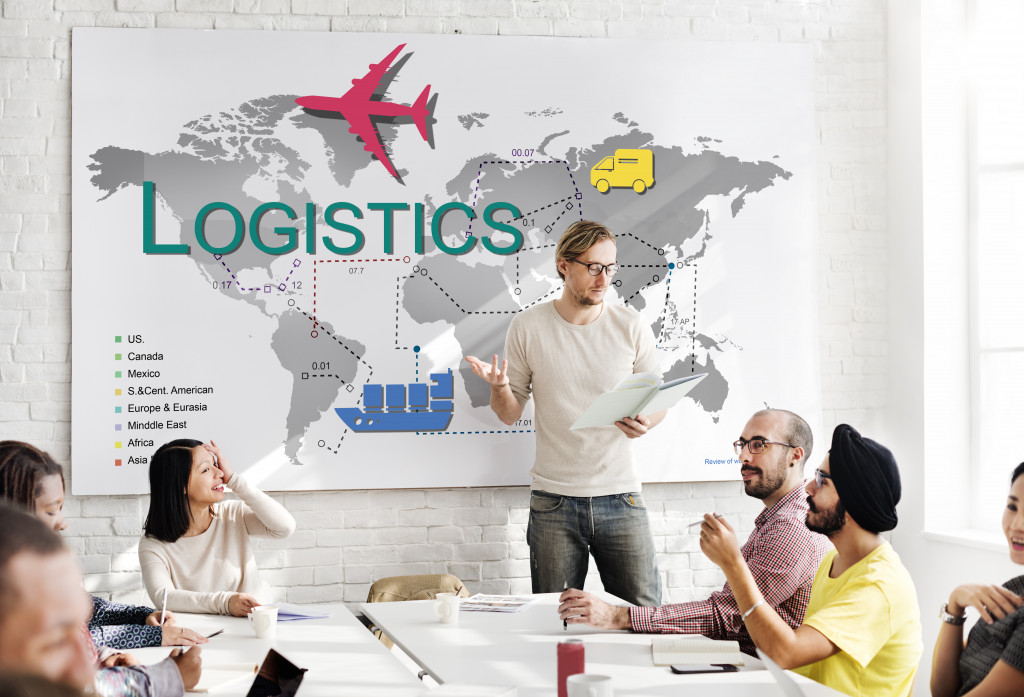For years, businesses have been improving their logistics processes to make them safer and more environmentally friendly. In the past few years, some significant advancements in logistics technology have made this goal more achievable than ever before. Here are six of the most important advances in greener and safer logistics.
Autonomous Vehicles
Autonomous vehicles are quickly becoming a reality as companies like Tesla and Waymo continue to develop self-driving cars.
These vehicles are equipped with sensors that can detect obstacles or dangers on the road. This allows them to navigate around them without causing an accident or delay. Also, they consume less fuel and are, therefore, more efficient.
Because they don’t require a human driver, they make it possible for delivery services to operate continuously without worrying about labor costs or drivers’ fatigue.
Sustainable Packaging
Businesses are turning to greener packaging options more and more. Therefore, consider partnering with efficient sustainable packaging companies for a more responsible logistics process.
These companies offer eco-friendly alternatives to plastic and styrofoam. They use recyclable materials like paper or cardboard in place of styrofoam. Doing so helps improve the sustainability of delivery processes. On the other hand, other companies are also using biodegradable packing peanuts or even vacuum-sealed bags to reduce waste.
Moreover, being sustainable isn’t just about being efficient. It’s also about caring for the environment. By using greener and better packaging, companies can have an impact on decreasing their carbon footprint and making the world a better place.
Smart Warehousing
Smart warehousing is an automated system that uses computers, sensors, and robotic arms to store and retrieve items from warehouses in an efficient manner.
This system eliminates manual labor while increasing accuracy and speed during picking operations. It also reduces wasted space and energy within warehouses. This improves safety conditions and reduces emissions due to fewer transportation trips between locations.
Furthermore, smart warehousing is also beneficial because it can be integrated with existing systems. This makes it easier for businesses to implement them into their operations.

Last-mile Delivery Optimization
Last-mile delivery optimization is a process that uses advanced algorithms and data analysis. This is to optimize delivery routes for maximum efficiency and cost savings.
This optimization allows businesses to plan out the best routes for their drivers. This can be done by considering traffic patterns, road conditions, customer locations, and more. For instance, a business can analyze customer locations and group them into clusters. This eliminates the need to send drivers to every single area.
Last-mile delivery optimization also helps reduce fuel consumption and emissions. This makes deliveries more efficient and environmentally friendly.
Robotics Process Automation or RPA
Robotics Process Automation, or RPA, is a technology many businesses use today. This enables robots or computer programs to take over specific tasks humans usually do.
RPA can automate manual, labor-intensive tasks in the logistics industry. This includes tasks such as order processing, data entry, and more. Because it eliminates manual labor, it helps reduce the risk of injuries and improves safety conditions in the workplace.
Additionally, it helps make warehouses more efficient by reducing the time it takes to pick, pack, and ship items. It also makes sure that orders are processed correctly and on time. This is essential for businesses that have to manage large volumes of orders.
Blockchain Technology
Blockchain technology has revolutionized how business transactions are conducted globally. This was done by providing an immutable ledger of records that cannot be tampered with or manipulated by malicious actors.
This technology allows for secure transactions between two parties without needing third-party intermediaries such as banks or governments. Hence, the cost reduction associated with these transactions while ensuring they remain compliant with sustainable regulations.
The regulation standards include carbon emissions trading schemes or reporting requirements on waste management practices that all businesses must abide by. Therefore, a company must use blockchain technology to remain competitive and to show customers that they are doing their part for the environment.
Over the past few years, there have been many advances in greener and safer logistics. All of which have positively impacted the environment and society. From autonomous vehicles that reduce emissions from fuel consumption to sustainable packaging and smart warehousing systems that reduce wasted energy and materials within warehouses, from last mile delivery optimization techniques that lead towards faster deliveries with less gas burned, from robotics process automation or RPA solutions that streamline operations; right down to blockchain technology which ensures secure transactions between two parties—these are just some of the ways you can improve your sustainable practices through better logistics. If you’re looking for ways your business can become greener and safer, look no further than these six advancements in greener and safer logistics!

